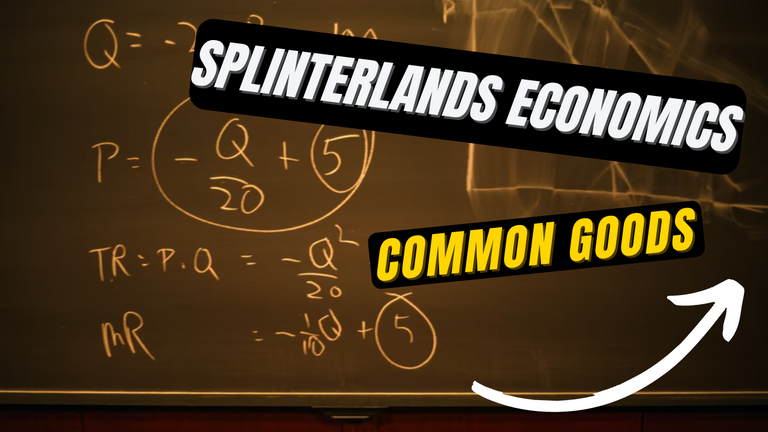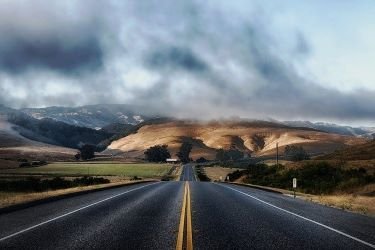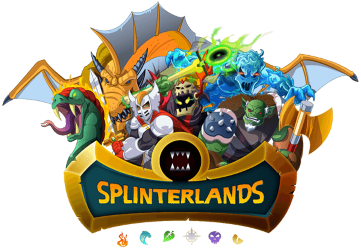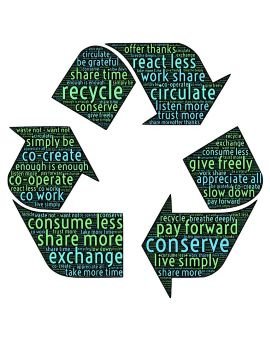Splinterlands Economics: Common Goods
Hello everyone! We are back again today with another edition of Splinterland Economics - a series in which we introduce a basic economic concept and then apply it to Splinterlands. If this is your first time reading, just to tell you a little bit about myself: my day job is in an unrelated area but I consider myself a little bit of economics nerd - I read a little (or maybe way, way) more news than I should, double majored in econ, and am obsessed with optimization. I love the way Splinterlands is equal parts card game and resource allocation game. My goal with these articles is to share a little bit of what I know with you all.
Our subject today is a little less about optimizing your day to day activities, and a little more about gaining insights into how economies both in real life and in Splinterlands function - today we are going to be talking about Common Goods!

What is a Common Good?

Common goods are things which are rivalrous, and non-excludable. What that means is that if this particular item is consumed then it isn't available to others (rivalrous), and that it isn't possible to prevent other people from consuming it (non-excludable). Some examples of common goods in real life would be public parks, roads, and the air that we breathe.

You may have heard of "the tragedy of the commons". This is referring to common goods, and the fact that they will tend to become overused or depleted because they are "free". In fact, the term "commons" was actually used in parts of Europe to refer to a communal portion of land which was available for everyone to use. As you may imagine, it is very easy for the commons to become run down and/or neglected. After all, if anyone is able to use a resource then there is little incentive to not use it if it is a viable option. And any improvements made to these common resources would benefit everyone, and not just the person using it.
The tragedy of the commons is a large reason for why we have governments and/or policies. The government is in a unique position to cultivate and maintain public goods for the benefit of all of its citizens. Where medieval lords would collect tribute and manage the commons (and commoners), governments today collect taxes in order to build public infrastructure and manage common goods where individuals would have very little incentive to otherwise. After all, a single person alone generally wouldn't have a large enough incentive or stash of capital to protect natural resources or prevent large corporations from polluting as much as they please. However, a government funded with contributions from everyone does (there are, of course, exceptions, but we're talking about the non-edge cases here).
How do we apply it to Splinterlands?

In Splinterlands there is a major common good that may come to mind - the ranked play rewards pool. DEC is added to the rewards pool over time, and anyone who plays a ranked match will gain a share of the rewards pool proportional to the size of the pool and the number of players participating in ranked matches, weighted by rating. This is a common good because once DEC is removed from the rewards pool it cannot be awarded to another player, and the rewards are available to anyone who chooses to play in ranked matches.
There is also another common good in Splinterlands, which is slightly less obvious - the community. Splinterlands is built on the Hive blockchain which has a thriving blogging community, and players are able to both passively read posts and actively earn rewards by posting and/or curating posts. This is a little bit less of a traditional common good since reading someone's writing doesn't "use up" the text or anything like that, but curation and writing payouts come from a limited and shared pool, and everyone is free to read, write, and comment on Hive.
Why should we care?

While my personal belief is that long term sustainable changes need to come from structural changes through rules/policies and careful design of incentives, understanding common goods gives us the option to do our part to avoid the tragedy of the commons. As an example, on Hive if everyone were to stop paying careful attention to writing and/or curating then it would be very easy for post quality and community interactions to decline. Because of this, we may choose to do our best to put out quality content and upvote work which we enjoy and want to see more of instead of indiscriminately writing out copypasta and randomly upvoting blog entries. Outside of Hive, you may choose to care for our planet and try to leave the world a slightly better place.
Understanding how common goods work also gives us additional insight into why everyone does the things they do. For example, everyone pushes and shoves to get a piece of the ranked play rewards pool in part because it is a common good. While I am anti-bot, I can completely understand why other players have chosen to run numerous additional accounts in order to grab a larger (and occasionally, MUCH larger) piece of the pie. We can view actions by the Splinterlands team such as the weekly battle and social media contests as investments in maintaining the Hive community public good, and know that they are choosing to invest the time and effort in order to protect that public good.
Knowing what a common good is and how it works may not make an immediate impact on your pocketbook, and in fact it may not make any difference in your wallet at all. But it does help us figure out a little more about that way that the world and economies operate, and that (at least in my opinion!) makes life just a little more interesting.
Thank you so much for reading all the way to the end. Interested in seeing some more of my writing in the future? Be sure to give me a follow! In the meantime, if you'd like to see some of my recent posts:
Chaos Control! - Using Chaos Knight in Battle! - This week's battle challenge, featuring Chaos Knight!
Splinterlands Economics: Elasticity - A introduction to compound interest, and how it can help you out in Splinterlands.
Splinterlands Economics: Marginal Analysis - An introduction to Credibility, and insights it gives us into Splinterlands.
Thinking about giving Splinterlands a try but haven't signed up yet? Feel free to use my referral link: https://splinterlands.com?ref=bteim, and be sure to reach out to me if you have any questions!
It's going to be real interesting once land kicks in with spells and weapons a long with lots of crafting resources
Posted Using LeoFinance Beta
Oh yeah, I'm looking forward to seeing what they do with land too...I can't wait! 😁
This is a great post, I believe probably the one which deserves to be the most impactful among your series. !LUV
@wlatt(1/1) gave you LUV. H-E tools | connect | <><
H-E tools | connect | <><
Tap to help.
Thank you! 😄
Mate, this is going to be the start of me diving through your econ content.
Liked and followed
Thank you, hope you enjoy it! 😁
Thanks for sharing! - @marianaemilia

Nice! Keep Going!